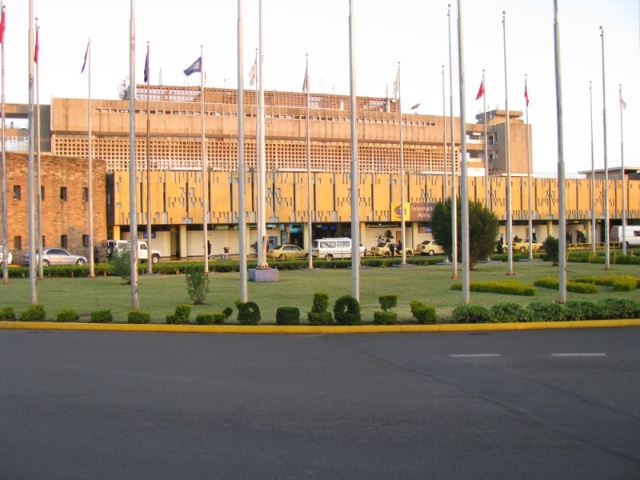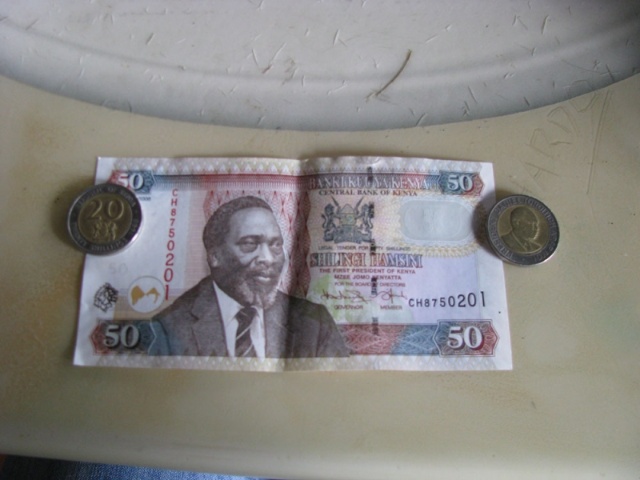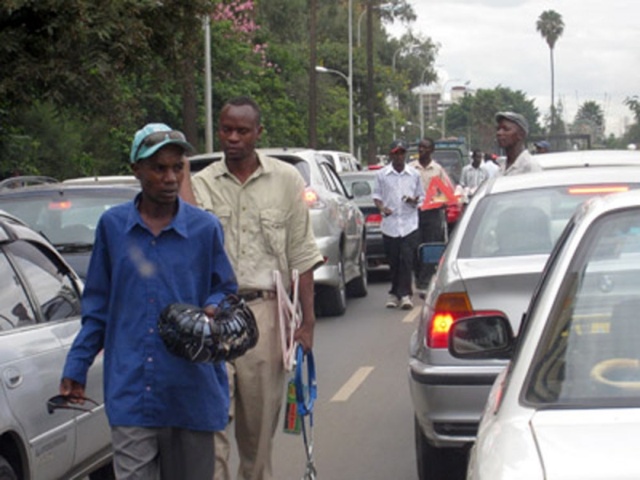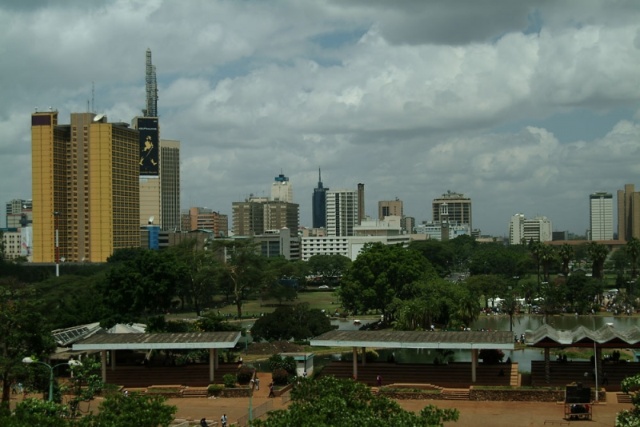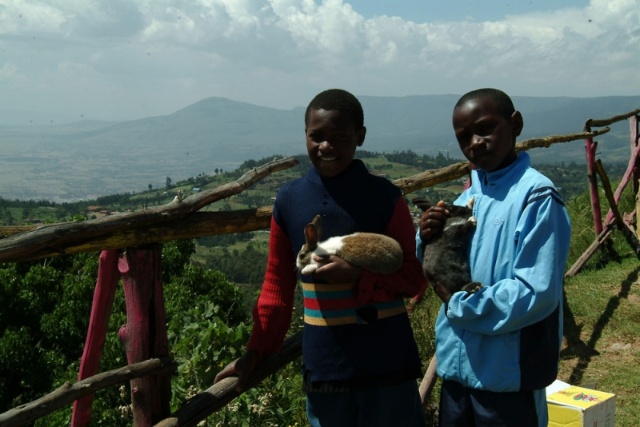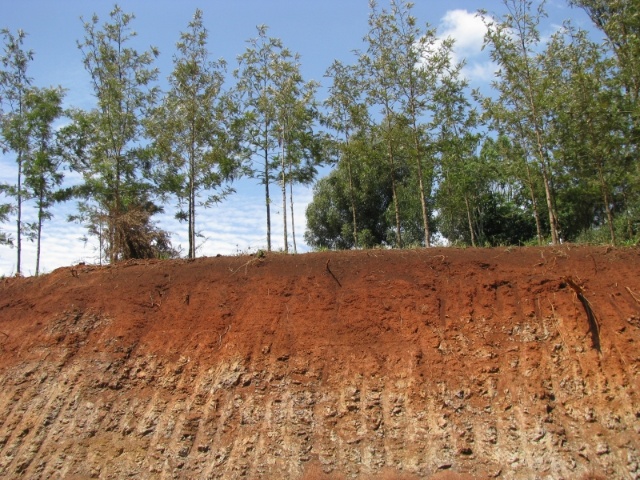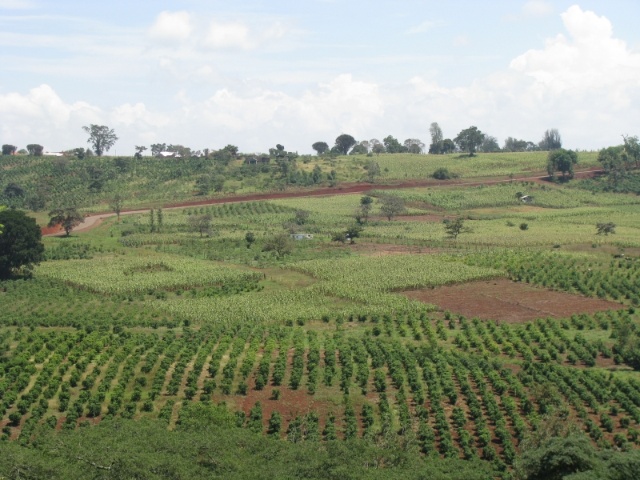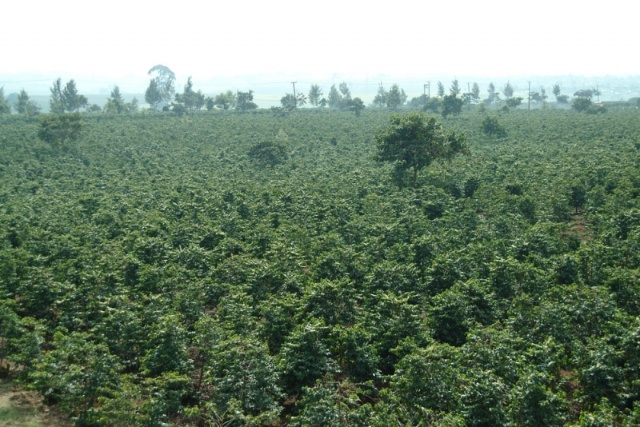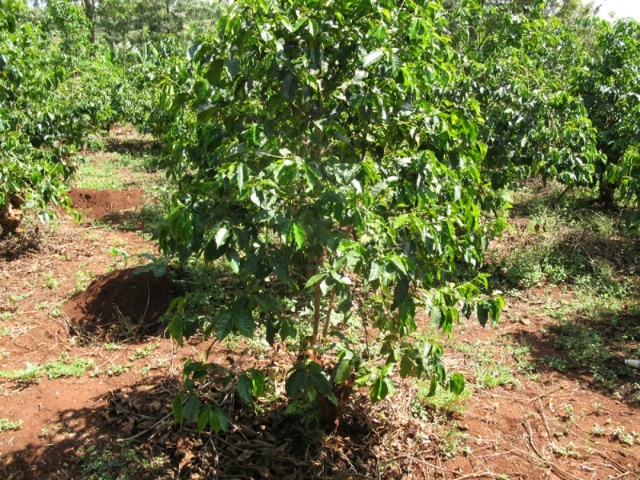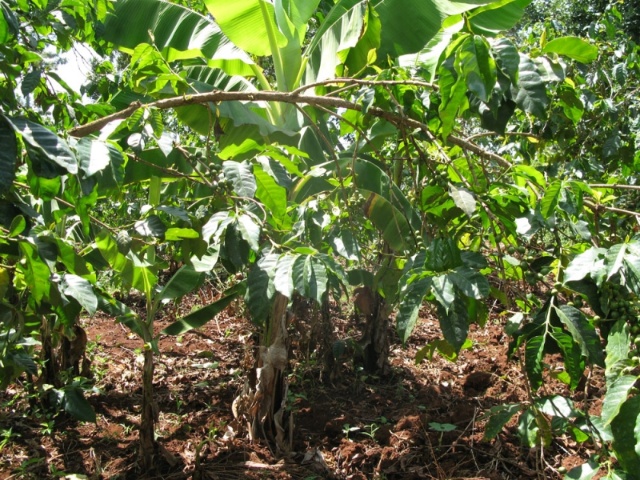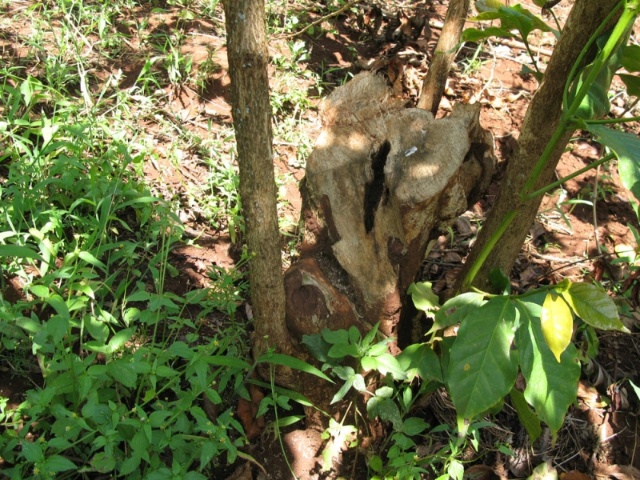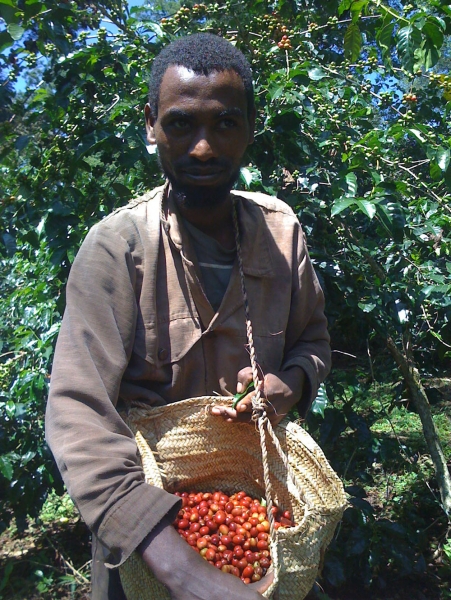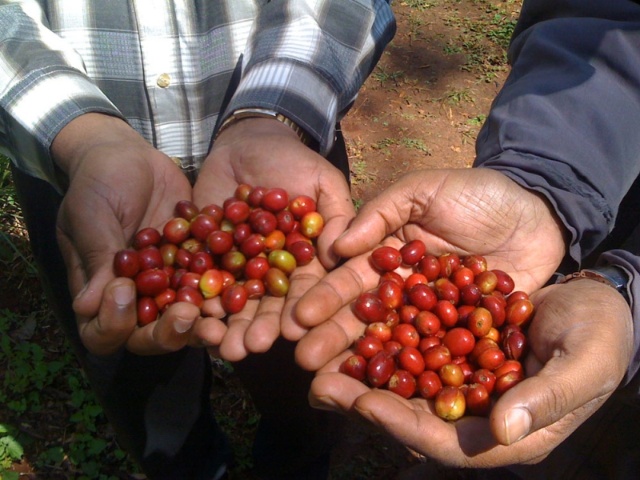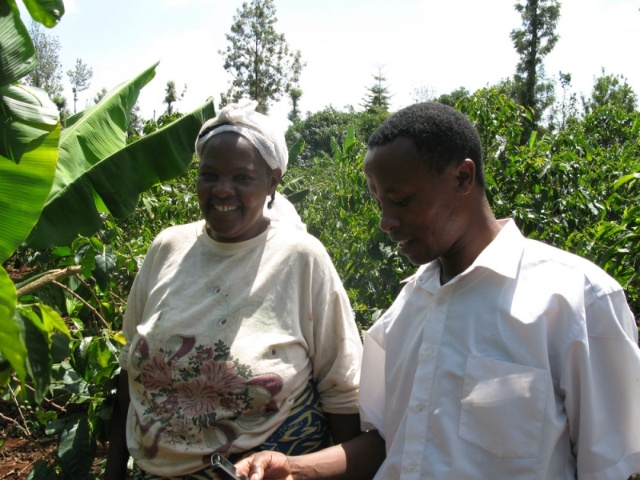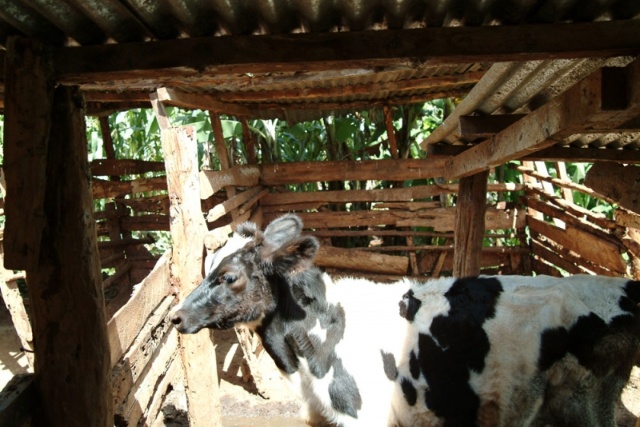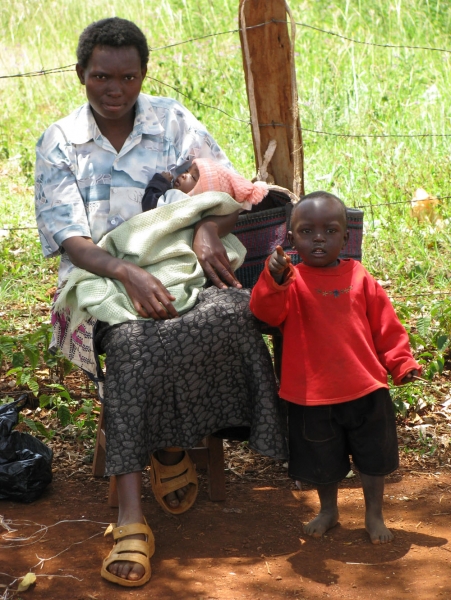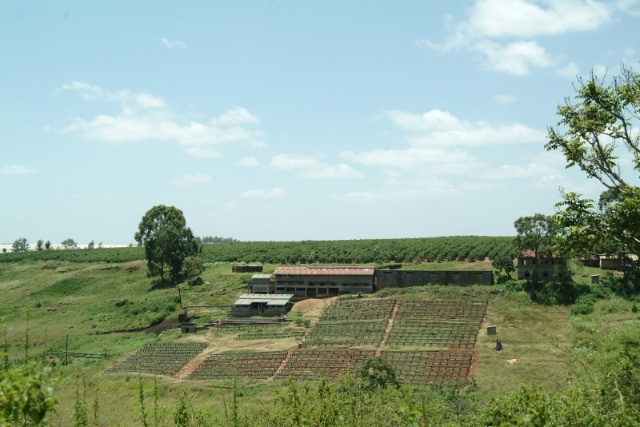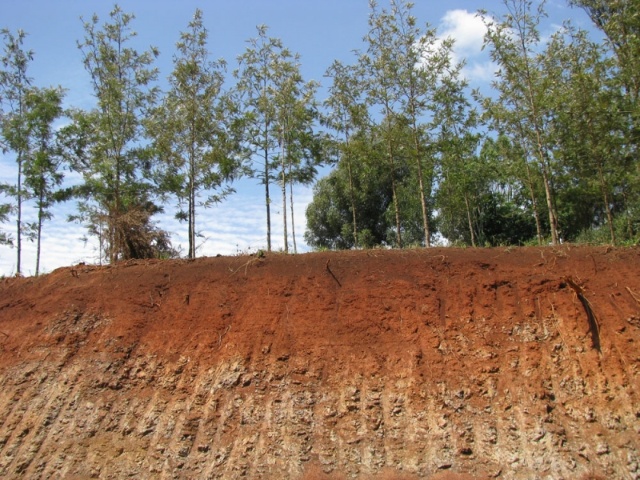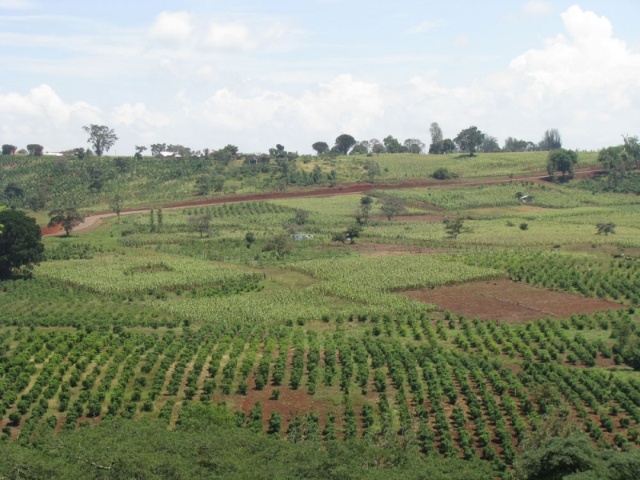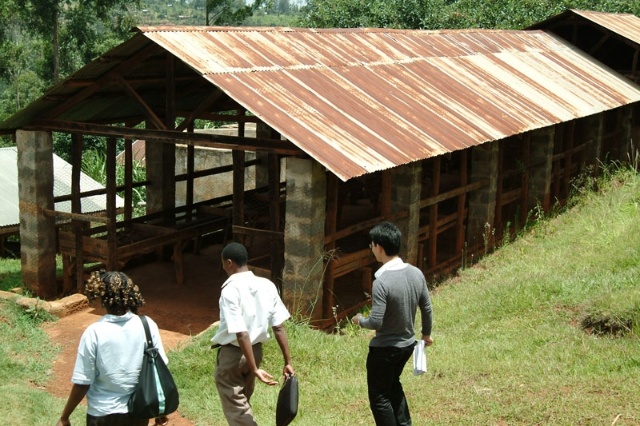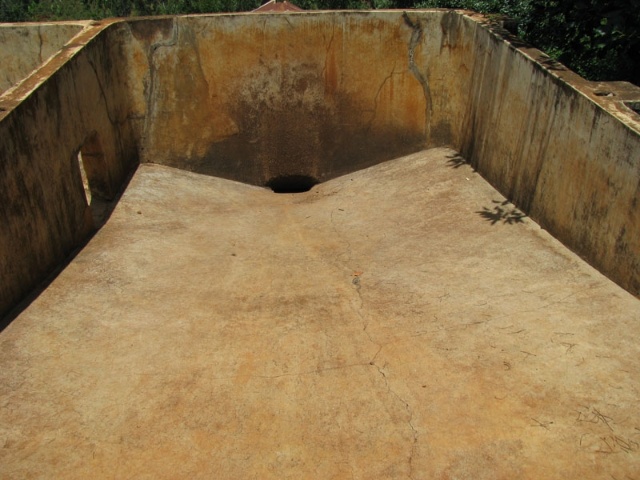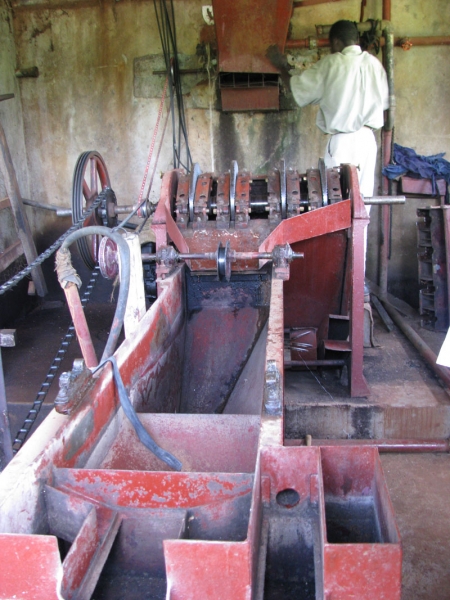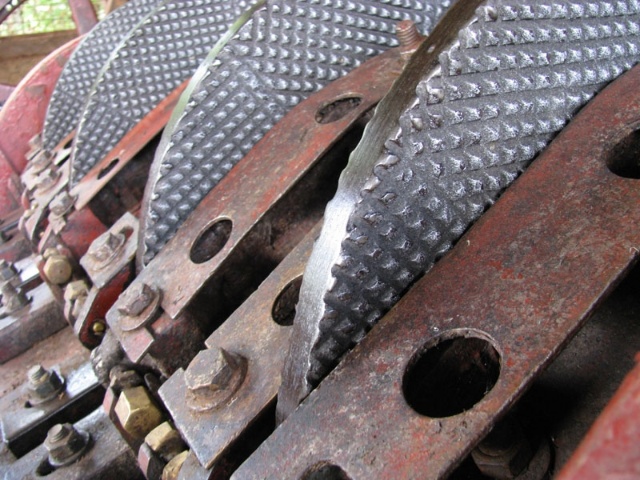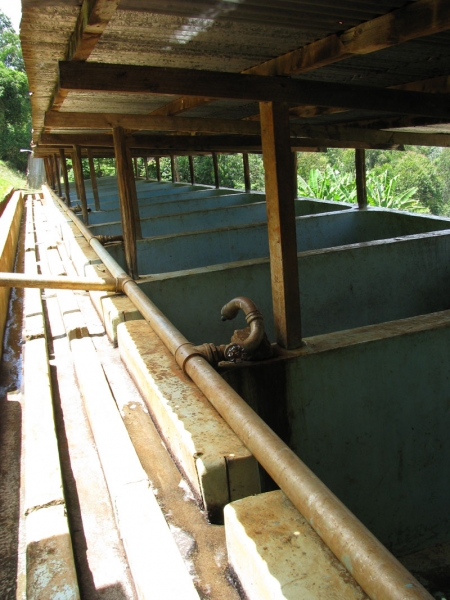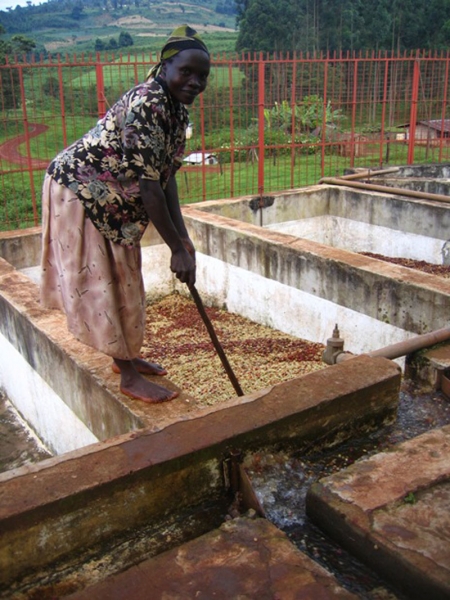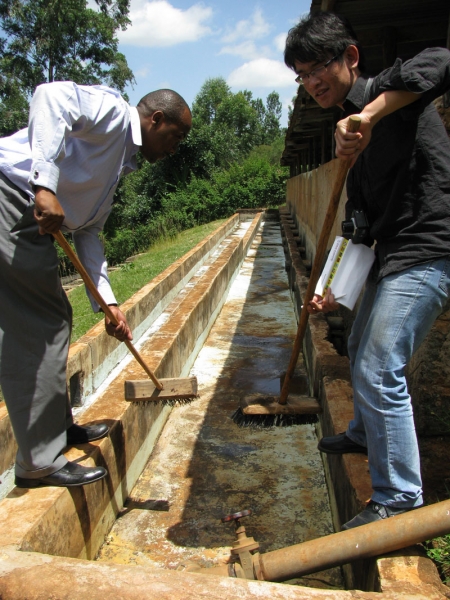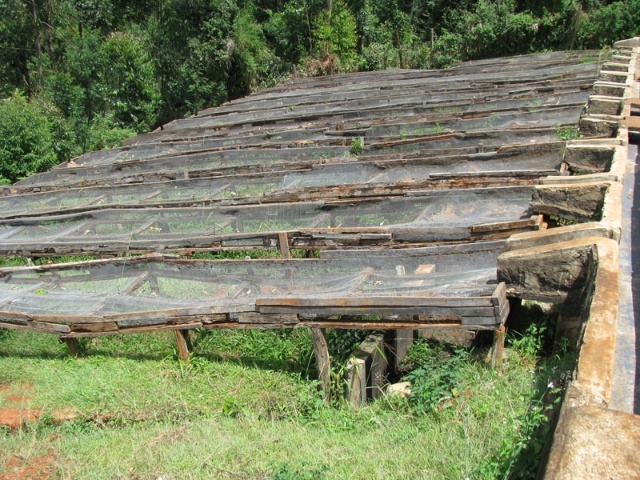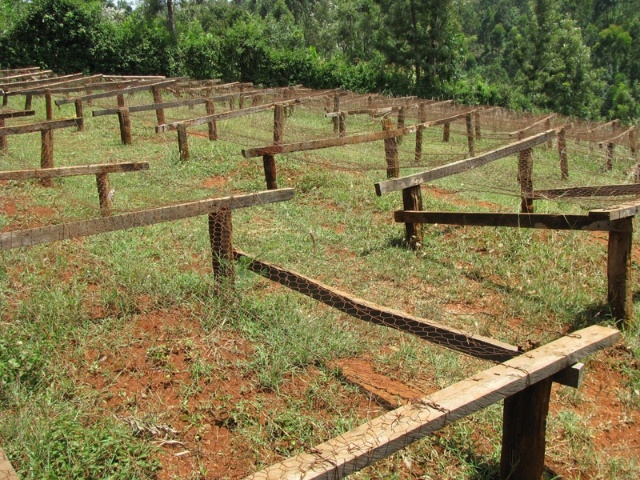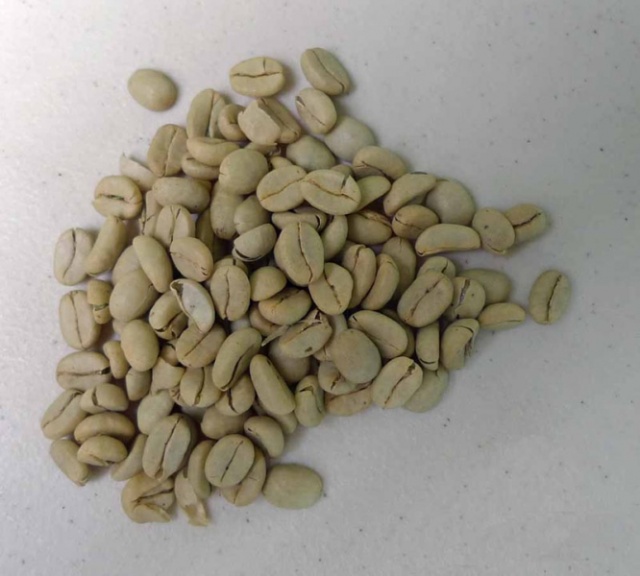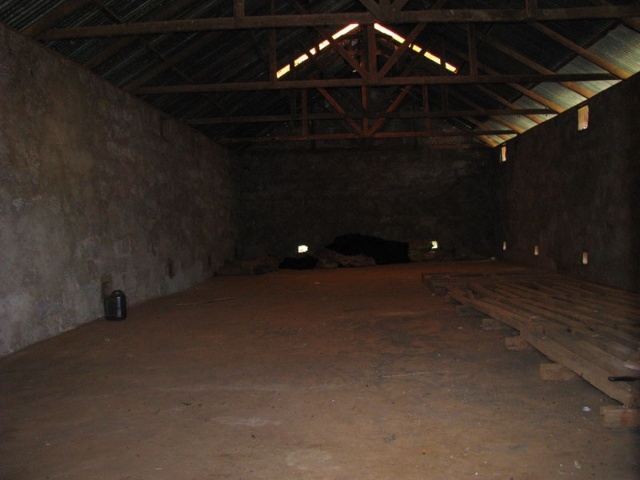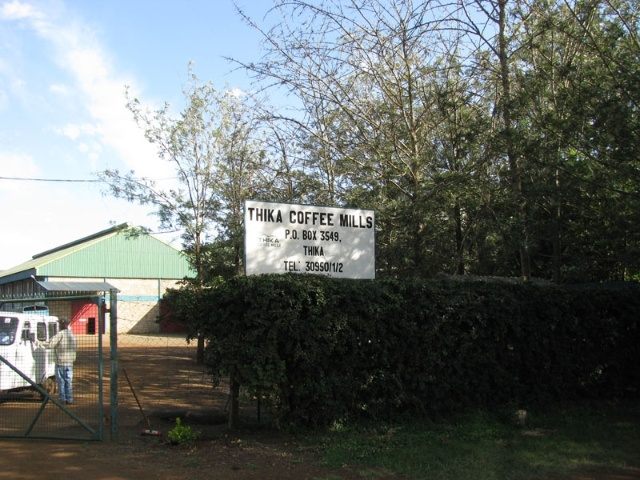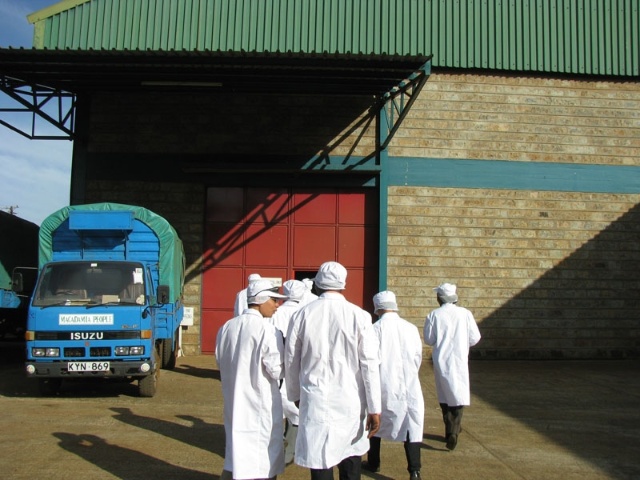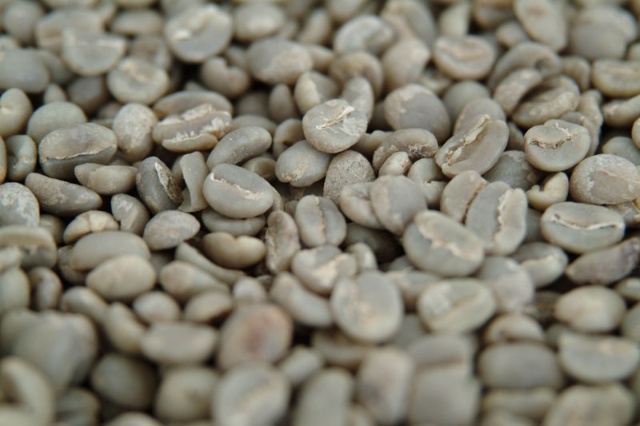The mysterious and Beautiful Coffee Manor of AA boutique coffee in Kenya
Kenya's coffee-growing areas are distributed around the capital Nairobi and in the northeast, extending to the areas of Nyeri, Meru and Embu on Mount Kenya. With Nairobi as the center, we went on a five-day farm trip to different farms and estates in Thika, Kiambu and Nyeri, unveiling the mystery of Kenyan "black gold". We have to admit that Kenya's coffee growing conditions are unique, but the diligence and professionalism of Kenyan coffee farmers make us more willing to pay for its expensive Kenyan coffee. If you have ever come into contact with the export of Kenyan coffee, you will be amazed by its professional and massive cup test! The 72-hour washing process and careful packaging also made us feel a lot of emotion. In a country known as the "origin of mankind", Kenyans interpret amazing coffee in their own way.
Nairobi is the capital of Kenya and the political, economic, cultural and transportation center of Kenya. It is said that it is like spring all year round and is known as the capital with the best climate in the world, so it is known as "Little Paris in Africa". The Maasai call it Nairobi, which means "cool spring water".
Nairobi Airport
Kenyan shillings, the exchange rate for RMB is 10 to 1.
Nairobi has a large population and its narrow streets are particularly crowded, so traffic jams have become commonplace. Unlike at home, the traffic jams here have a different picture: vendors interspersed the streets, peddling daily necessities to drivers and passengers. I also saw someone selling Pleasant Goat and Grey Wolf's windmills.
A tourist corner of Nairobi
Here is the Viewpoint (tourist spot) west of Nairobi, 2666 meters above sea level, the foot of the mountain is the East African Rift Valley, opposite there is a slightly warped volcano, the view is infinite. Is it a bit like "one day I will climb to the top of you and have a panoramic view of the small mountains around me"?
Cowhide blankets made of real materials sell very cheaply, about 80,200 yuan each, which must be 500 yuan in China.
There are children selling rabbits on the mountain.
Before the coffee farm and manor went to Kenya, I had this question: is the Kenyan manor bean better or the small farm bean better? If it is manor beans, which manor is the best? In fact, the answer is very simple: you'll see.
The mountain road was rugged and we took a special convertible.
You can see the fertile red and black soil all the way.
At first we thought it was a coffee tree, but our friends told us that these were pineapples (Pine Apple).
Finally arrived at Sasini, a coffee processing factory in Kiambu, which also has its own coffee farm.
Sassini has a watchtower, and we can climb it and look down around.
The endless Sassini Coffee Manor
It is the flowering season, and most coffee trees are full of flowers.
Coffee bushes at dusk
Jane's coffee farm is more remote than Sassini Manor. It is located in the mountains of Thika, and we have to climb along the mountain road for an hour after we get off the road.
The owner of the farm: Jane, a fat lady with a white scarf on her head, an old white coat and a long blue skirt
Jane's coffee farm. Jane told us that her coffee garden has about 170 trees, covering an area of 0.25mu, and produces a total of 1500 kilograms of coffee fruit twice a year.
The coffee trees in the garden range from 1 meter to 1.5 meters in height, and the distance between the trees is about 90 centimeters, in which bananas or other crops are planted across. Jane said that because coffee trees are afraid of the sun, there are many uses for growing these crops: on the one hand, they can help them shade, and on the other hand, they can help them absorb nutrients better.
Every 4-5 years, Jane will cut off the coffee tree and keep the bottom of the stem so that it can become a stump, on which new branches can grow to produce better fruit. Usually, Jane will keep the thickest branch. This branch is called "Mom". Why keep it? Because if you cut off the "mother", the roots will wither and the whole coffee tree will die.
Occasionally there are yellow or small spots on the leaves because the tree has coffee berry disease (Coffee Berry Disease). This coffee garden is full of SL-28 varieties, which tastes good, but its disease resistance is slightly weaker. In order to improve disease resistance, Kenyan coffee farmers have developed new varieties, and the most typical is R11. It is said that the Kenyan R11 variety has reached 5%, but its taste is not as good as SL-28 and has not been widely adopted by most coffee farmers.
You can tell by comparing good fruit with bad fruit.
Since February is not the harvest season, we do not see ripe coffee fruit in Kenya. Here is a photo of coffee fruit taken when I went to Ethiopia.
Joseph (Joseph), a cadre of the village committee. I took the opportunity to ask Joseph a question I was concerned about: is the manor bean better or the small farm bean better? There is no absolute answer to this question, Joseph said. Because the Kenyan coffee industry is made up of 75% of smallholder cultivation and 25% of manor cultivation. Compared with small farmers, manor planting has the advantages of advanced technology and unified management, while small farmers take good care of and use more organic fertilizers than manor planting. In addition, regional factors and weather factors also affect the quality of coffee, so it is difficult to decide which is better or worse. In Sika, most coffee is grown separately by farmers and then sold to processing factories by rural cooperatives. Farmers are United. In order to sell their coffee at a better price, they constantly increase the need for agronomy and the development of high-quality coffee tree species, urge each other and encourage neighbors not to cheat, thus greatly promoting the development of coffee in Kenya.
Jane's own dairy cow is self-sufficient and happy.
Mother and son on the roadside on the hillside saw that our eyes were full of curiosity. Perhaps they seldom see foreigners, where the skin is not black, it is novel to them. There were many children by the side of the road, and when we walked forward, the children scattered, some hiding under the trees not far away, some hiding in the house, and sticking their heads out from time to time. Occasionally, one or two farmer brothers who grow crops will walk by. When they make eye contact, they will say very kindly: Jambo! Hello! )
3. Coffee washing station and processing plant A friend from Switzerland once told me that latitude affects the alcohol, the closer to the equator, the thicker the alcohol; the altitude affects the acidity, the higher the altitude, the better the acidity; the soil affects the flavor, the more fertile the soil is, the better the coffee fruit grows. Kenya, which is crossed by the equator, has natural volcanic ash soil and surrounds Mount Mount Kenya, the second highest mountain in Africa. Kenyans cite the ancient bourbon coffee (Bourbon) and grow the world's top Arabica coffee on land with an average elevation of more than 1600 meters. I don't know if the term "top" is too decisive, but at least Kenyans firmly believe it. J Kenya wet treatment process (Wet process method), also known as whole water washing process (Fully washed method), after 90 years of historical precipitation, the development has been very mature, and is regarded as the best washing process in Africa and even in the world.
In this way, 6.5kg of coffee fruit is washed into 1kg of peeled coffee beans-also known as parchment coffee beans (Parchment coffee).
When the coffee fruit is ripe, the farmers pick it and transport it to the washing station. Unlike Ethiopia, Kenyans take advantage of the terrain to build washing stations on the hillside so that coffee fruits can flow along the hillside to the next level, greatly saving labor costs. Basically every rural cooperative has a sound washing station.
Then, coffee fruits from different farms (the same countryside) are concentrated here, ready for pulp treatment.
The coffee fruit flows from top to bottom and passes through the pulp removal machine, also known as the pulp collector (Pulper). After the pulp collector, the coffee beans can be divided into three grades according to their density: heavy grade, medium grade and light grade. Generally speaking, intermediate beans and heavy beans are better, and the legendary AA is screened out from medium and heavy beans.
Recent photos of pulp collector
Heavy, medium and light beans come out of the pulp collector, flow through different canals and enter their respective fermentation ponds.
From the pulp collector, the raw coffee beans have basically formed, but the surface of the coffee beans is still covered with a layer of sugar glue (Sugary mucilage), so it has to be fermented in the fermentation tank. Kenya's fermentation time is astonishing, up to 12-72 hours, depending on the weather and temperature.
At this time, the sugar glue on the surface of the coffee beans had fallen off, and in order to ensure a complete reaction, the farmers had to scrub it again on the canal.
The temporary tanning bed (skin drying tables) on the hillside was moved to the tanning bed after 2-4 hours of simple drying.
Sun drying bed (Drying tables), usually 8-21 days, until moisture content is 13-16%
Dried coffee beans with skin (Parchment coffee)
Finally, the peeled coffee beans are stored in the warehouse and ready to be sent to the processing plant, whether it is a small farmers' coffee farm, a rural cooperative, or a large coffee farm. All washed peeled coffee beans must be transported to the coffee processing plant for processing. The equipment in the processing plant is so expensive that only large enterprises and the government can afford it.
Sika Coffee processing Plant (Thika Coffee Mills). There are six large processing plants in Kenya, of which Sika has two, namely, the Sika processing plant and the tropical coffee processing plant (Tropical Coffee Mills), of which Sika is the largest. Because of the well-equipped and advanced technology of the Sika processing plant, some rural cooperatives in Uganda and Rwanda have to be shipped here for processing.
After all the processing, all levels of beans can be pulled to the auction and the auction is over. At this point, our trip to Nairobi in Kenya is over!
Important Notice :
前街咖啡 FrontStreet Coffee has moved to new addredd:
FrontStreet Coffee Address: 315,Donghua East Road,GuangZhou
Tel:020 38364473
- Prev
Brazil Hilado Rainforest Certified Golden Bean
Brazil Hilado cerrade rainforest certified gold beans New World coffee beans roasted, listened to the advice of raw bean merchants, and immediately turned off the beans at the sound of the second explosion. Grinded into coffee powder, Brazil's crrrade Hilado rainforest certified Golden Bean New World Coffee smells a little wild, reminiscent of the yellow land of Brazil on Earth. Use
- Next

Yunnan Manlaojiang Coffee Manor is just to awaken your beauty.
Yunnan Jisi Trading Co., Ltd. was established in April 2006, the company's business scope is: domestic trade, material supply and marketing; import and export of goods and technology; processing of agricultural products; is a comprehensive import and export enterprise mainly engaged in coffee, cassava and other cash crops processing and sales, and obtained the record certificate of export food production enterprises in the State Commodity Import and Export Inspection and Quarantine Bureau. Public
Related
- Does Rose Summer choose Blue, Green or Red? Detailed explanation of Rose Summer Coffee plots and Classification in Panamanian Jade Manor
- What is the difference between the origin, producing area, processing plant, cooperative and manor of coffee beans?
- How fine does the espresso powder fit? how to grind the espresso?
- Sca coffee roasting degree color card coffee roasting degree 8 roasting color values what do you mean?
- The practice of lattes: how to make lattes at home
- Introduction to Indonesian Fine Coffee beans-- Java Coffee producing area of Indonesian Arabica Coffee
- How much will the flavor of light and medium roasted rose summer be expressed? What baking level is rose summer suitable for?
- Introduction to the characteristics of washing, sun-drying or wet-planing coffee commonly used in Mantenin, Indonesia
- Price characteristics of Arabica Coffee Bean Starbucks introduction to Manning Coffee Bean Taste producing area Variety Manor
- What is the authentic Yega flavor? What are the flavor characteristics of the really excellent Yejasuffi coffee beans?

